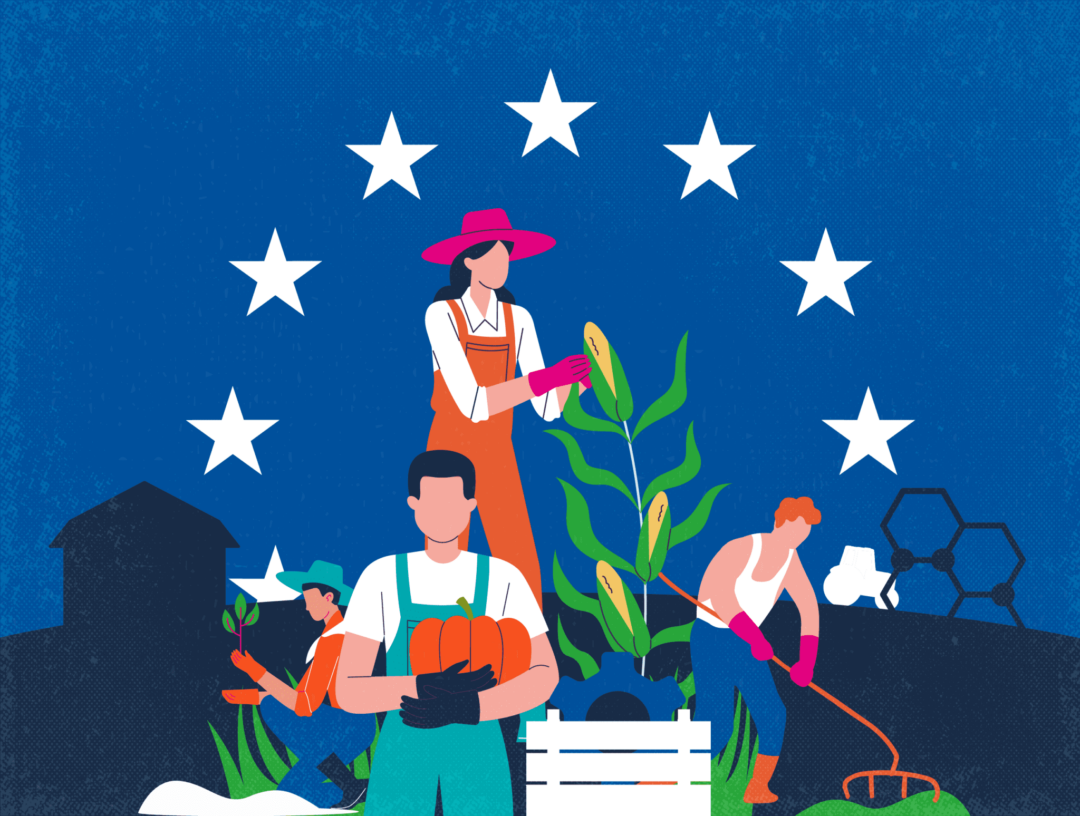By Effie Lazaridou, New Agriculture New Generation
The European Agri-Food Sector Facing New Challenges
“Food security, food safety, and supply chain resilience are still the issues at the forefront of the discussion in the European agri-food sector, amid ongoing global crises—from geopolitical instability to the impacts of climate change and energy uncertainty. The need for transformation is urgent: the sector is called upon to play a leading role in providing adequate nutritional food for all without compromising the environment and the livelihood of rural communities.

“In recent decades, global agricultural output has grown substantially—but not without significant environmental costs. Fertilizer use has quadrupled, irrigated land has doubled, and pesticide usage has increased 38-fold. However, this intensive growth has not aligned with sustainable production. The consequences—such as soil degradation, biodiversity loss, and resource depletion—have become increasingly disturbing and in certain cases irreversible. In Europe, soil degradation and poor resources management are estimated to cost the agricultural economy billions of euros annually through reduced productivity and increased input dependency.
The Need for a Radical Shift
“Europe’s food systems are shifting from mass production to a model based on circularity, regeneration, and environmental responsibility. Driven by the EU’s Farm to Fork strategy—part of the European Green Deal—this transformation links production, consumption, and sustainability to ensure food security while minimizing environmental impact. Although structural reforms are underway, some sustainability initiatives have been delayed due to global political and economic pressures. Meanwhile, the upcoming EU budget discussions for the post-2028 period raise concerns about securing adequate funding to support the transition toward more sustainable agriculture and food systems.
Human Capital: The Foundation of the Transition
“The twin transition -green and digital- in European agriculture shall only succeed with the active engagement of the younger generation that needs to develop the necessary skills, competences and tools. Today, only 11% of farmers in Europe are under 40 years old, while less than one quarter of them have received full agricultural training. This situation calls for urgent systemic interventions.
“Developing new models of education and training in agriculture is essential, with approaches such as farmer-to-farmer training playing a key role. Expanding educational infrastructure and lifelong learning opportunities—through living learning labs and demonstration farms, both existing and new—further supports this effort. Linking research with practical application via test-bed projects ensures that innovations are relevant and readily adopted. Strengthening private sector involvement through open innovation initiatives is also crucial. In addition, fostering entrepreneurial mindsets among rural youth through educational campaigns and professional exchange programs helps build a more dynamic and future-ready agri-food sector.
“To this end, the European Agricultural Knowledge and Innovation System (AKIS) is recognised as a key lever of transformation. It facilitates two-way communication between research and practice, supports problem-solving at the farm level, and boosts the competitiveness of agricultural holdings through knowledge transfer and innovation support. AKIS should become even more interactive, combining real-time solutions and feedback with mid-to-long-term planning, especially vis-à-vis climate crisis mitigation options.
The Role of EU-Funded Programmes in Driving Transformation
EU-funded programs are key to making the agri-food sector more sustainable, innovative, and resilient. The Common Agricultural Policy and initiatives such Horizon Europe and the EAFRD should further future-proof the entire ecosystem -farmers, researchers, and communities- through funding and strategic guidance. They should promote smart farming, environmental regeneration, skills training, infrastructure, and collaboration, helping to close regional innovation gaps and ensure rural areas benefit from the twin transition. By aligning funding with policy goals, these programs boost long-term competitiveness across the sector.
Societal Involvement and Multi-Stakeholder Cooperation
This bold transition cannot be achieved through institutional measures alone. Public-private partnerships, community-based initiatives, and civil society organisations must act as accelerators of change. Initiatives already underway in several EU member states must be scaled up and integrated into a broader strategic vision.
Effie Lazaridou, the CEO of the Greek non-profit organisation New Agriculture New Generation, a non-profit focused on capacity building and entrepreneurship support in the agri-food sector in Greece, the EU, and the Mediterranean.
NewsletterOpinion